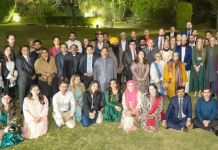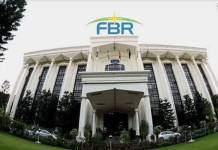From Our Correspondent
PESHAWAR, JUN 30 /DNA/ – The Human Rights Commission of Pakistan (HRCP) its flagship annual report on the state of human rights in 2024 highlights a significant decline in democratic standards in the country, fueled by increasing concerns over the legitimacy of the general elections and the weakening of the parliamentary system.
The report made public in a press conference on Monday also pertained to deteriorated law and order situation along with increasing acts of violence against women, children, non Muslim minority and transgenders.
Its findings with respect to Khyber Pakhtunkhwa show that the province endured significant casualties among civilians as well as law enforcement and security personnel in 2024 as a result of militancy, reflecting the region’s deteriorating security environment. In Kurram, sectarian violence and tribal rivalries also contributed to nearly 250 deaths, while the consequent closure of roads and supplies triggered a humanitarian crisis.
The deterioration in democratic governance, civic freedoms and law and order raised serious concerns over the region’s political and social stability. However, the increased electoral participation of women in 2024, signaled a modest but welcome step towards political inclusion.
Data from the provincial police indicates that 77 people were charged with blasphemy and 49 people arrested, including one woman. However, the brutal lynching of a tourist in Swat, following an accusation of blasphemy, reflects an alarming rise in vigilantism nationwide.
The state’s ban on the Pashtun Tahafuz Movement ahead of a national jirga restricted civic space further. The report also recorded at least 105 new cases of enforced disappearances in the province, based on official data, prompting repeated judicial interventions. While some progress was seen in freedom of movement through the reopening of the Torkham border, mobility restrictions and local protests persisted.
Legislative output remained limited, with only 30 bills introduced and 21 passed. The judiciary continued to face pressure, with more than 23,000 cases pending at the Peshawar High Court and a backlog exceeding 38,000—many involving contempt proceedings against political and police actors.
The report documents persistent gender-based violence, including hundreds of cases of domestic abuse, sexual assault, and honour killings. Violence against children also surged, with scores of minors killed, assaulted or sexually abused, reflecting serious gaps in child protection. Khyber Pakhtunkhwa remained a key route for the deportation of Afghan nationals under the federal government’s Illegal Foreigners Repatriation Plan.
Labour rights violations continued unabated. At least 26 miners lost their lives due to hazardous working conditions and militant attacks, underscoring the ongoing risks faced by workers in extractive industries. A spate of kidnappings saw at least 30 labourers abducted by militants in separate incidents. Persistent wage issues were also reported across sectors, despite provincial pledges to raise the minimum wage.
Environmental challenges intensified, with floods and torrential rains claiming over 100 lives and Peshawar ranking among the world’s most polluted cities.

















